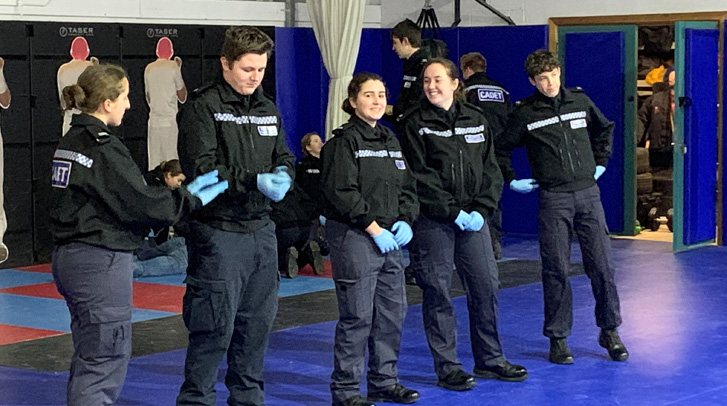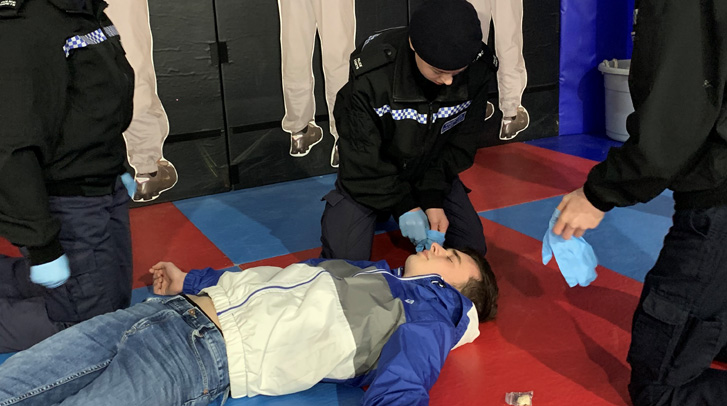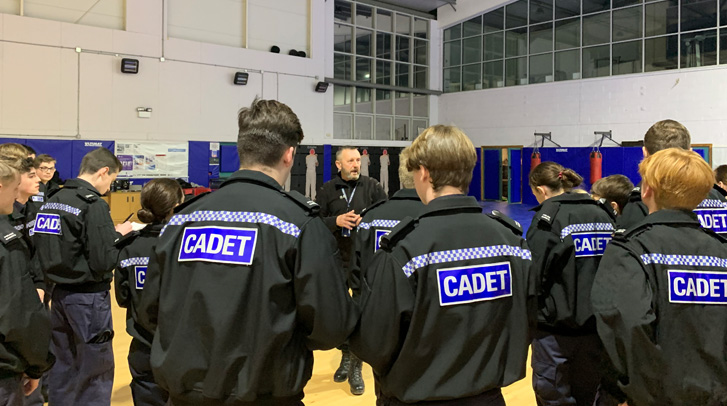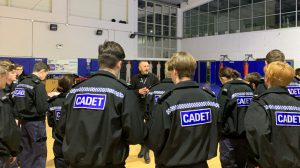The relationship between the police and teenagers can be fraught and complex. We often hear from some children that they don’t trust the police. They tell us they feel there is a “them against us” attitude. But at the same time, they also tell us they would like more police visibility to make them feel safer.
In Kent, the local police force has invested in its Volunteer Police Cadet Programme, specifically trying to attract vulnerable young people. The scheme provides an opportunity for young people aged 13-17 to get involved in activities that support community policing and learn about responsible citizenship.

What is striking, and what clearly adds to its success, is the focus the team places on the welfare of its cadets – above and beyond the core activities.
“It’s very inclusive,” says Chief Inspector Jason Wenlock. “There’s no one we’ve said no to. We deal with challenges such as children presenting as being groomed elsewhere, or dealing with emotional issues such as depression.”
Jason oversees the Volunteer Cadets as part of a wider portfolio; the day to day management is led by Charlotte Evans.
“Maidstone tried to run the cadets twice before but neither time was successful. It wasn’t interesting enough,” says Jason.
There are currently 9 cadet units running across the county with the 10th opening in Thanet in May.
Establishing the cadets in Thanet has been a particular ambition of the force and we hear how Thanet receives many young people who have been moved there by London boroughs for various reasons, including county lines.
Whilst the cadets is open to everyone, they work towards a target of 25% of their participants being children who are vulnerable to exclusion, crime and abuse. A criminal record won’t prevent a child joining, in fact in some ways it’s encouraged. As the Chief Constable put it as he passed by our table, “some of these young people might have ended up being our customers.”
Currently, there are two teenagers attending as part of their Youth Rehabilitation Orders and Charlotte periodically sits on the Youth Justice Panel with a view to identifying potential teenagers who are going through the youth justice system and who might benefit from joining the cadets.
“One cadet joined with 40 crime reports against his name and he has not been in trouble with the police since.”
The impact on those individual’s lives, choosing a different path, will be immeasurable. The cadets themselves say they feel safe and protected.
The scheme has designed its own cadet and volunteer management system that records the personal details and medical issues of cadets. It also provides lesson plans and training tools for the adult volunteers. Attendance of cadets is recorded here as well as session notes and records of one-to-one chats. This means Charlotte can follow up on any absences or welfare issues that crop up during the sessions in any of the units through the course of the week.

On the night we visited, the cadets were practising skills they would use in a real life police situation. Two of the older cadets pretended to be involved in a knife crime and the rest of the cadets had to seal off the area, find the weapon and interview witnesses.
Their enthusiasm and pride in being a Volunteer Police Cadet was clear.
“I’ve changed as a person,” Callum explains. “It’s built up a lot more confidence in me.”
Similarly, Riess has noticed a huge change in his outlook on life: “I feel better about myself. I have more friends. I understand people and society better.”
All four cadets spoke passionately about the difficult relationship the police can sometimes have with young people. They agree that they see a “them against us” attitude, often from their friends in school. But joining the cadets has helped bridge that gap.
“I was scared of the police, I found them intimidating. But being in the cadets means I’ve met more of them, it shows a different side to them, a more human side. Now I’m less intimidated and scared by them and have a much better view of them.”
“It gets people interested and changes people’s perceptions.”
The activity programme focuses on fun activities, but there’s also a practical side. Cadets learn first aid, CV skills, policing techniques and the community volunteering activities can be anything from tidying up a care home to stewarding cars at local events.
Mafalda thinks that maintaining a strong local presence has a positive impact on the community. “People talk to us at events, it gets people interested and changes people’s perceptions.”

It’s also challenging negative stereotypes about teenagers. As Sophie explains, “When we go volunteering people talk to us and say they have never seen police cadets before. When they talk to us they realise we are quite nice kids.”
At school though, some of them keep their cadet identity under wraps.
“Some kids in my school at least they’re kind of disgusted at it. A lot of kids in my school do drugs so they see the cadets and the police as a really bad thing,” explains one cadet.
“It’s an authority issue,” says Mafalda.
But this hasn’t stopped the 350 cadets currently volunteering in Kent. And with a waiting list of 426, there are plenty of other who refuse to be discouraged.
“We are very much a family.”
The positive impact this scheme is having on vulnerable young people is clear. Investment and buy-in from senior leaders mean the extraordinarily passionate and dedicated team are well supported. And it’s the welfare offer that really stands out. Fun activities make people come, but it’s the emotional support and care that makes them stay.
As Sophie puts it, “We are very much a family.”






